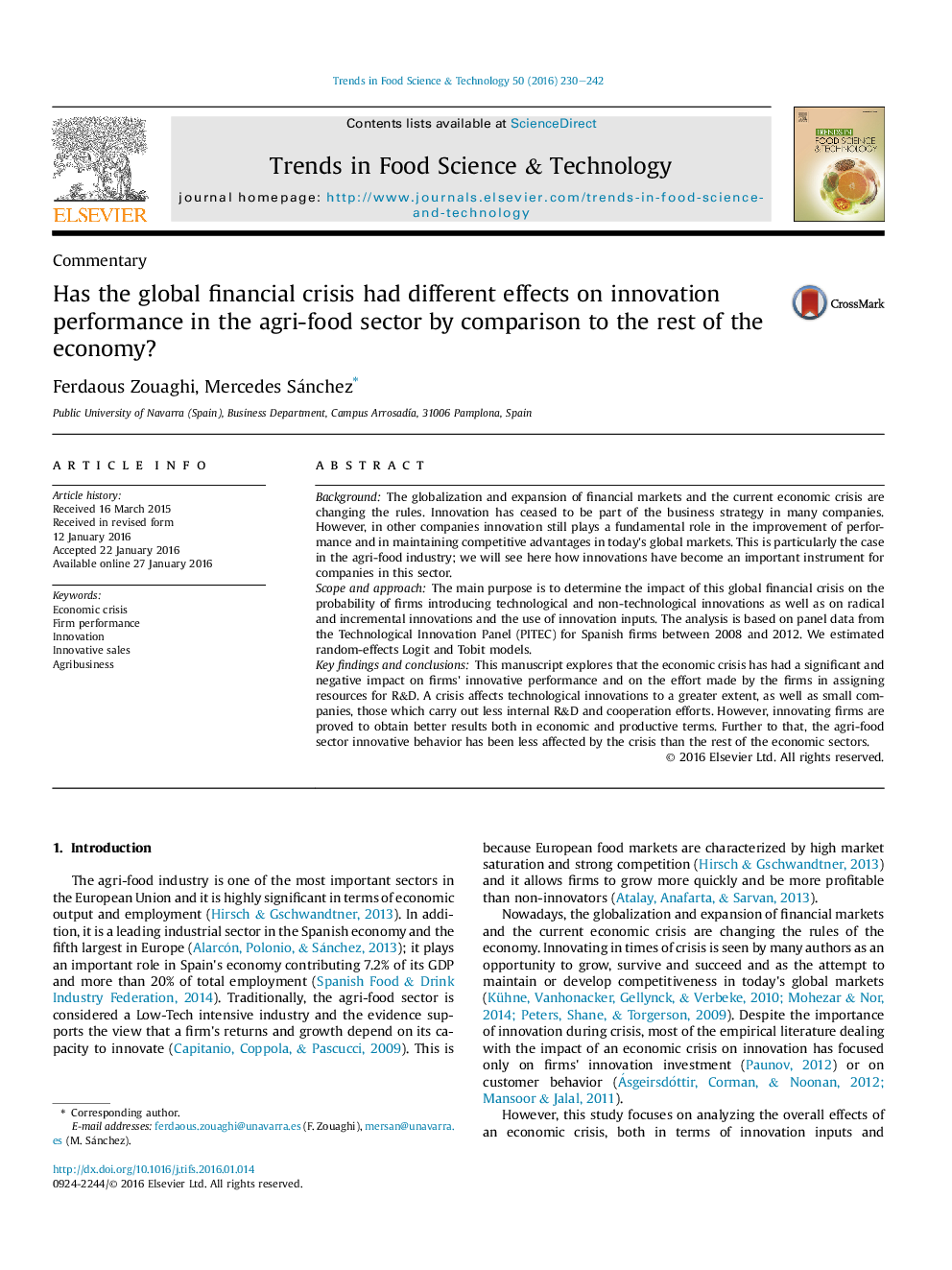| Article ID | Journal | Published Year | Pages | File Type |
|---|---|---|---|---|
| 2098463 | Trends in Food Science & Technology | 2016 | 13 Pages |
•The global economic crisis has had a significant and negative impact on firms' innovative performance and innovation inputs.•The global economic crisis affects technological innovations to a greater extent, as well as small companies.•The small agri-food companies carry out less internal R&D and cooperation efforts.•The agri-food sector innovative behavior has been less affected by the crisis than the rest of the economic sectors.
BackgroundThe globalization and expansion of financial markets and the current economic crisis are changing the rules. Innovation has ceased to be part of the business strategy in many companies. However, in other companies innovation still plays a fundamental role in the improvement of performance and in maintaining competitive advantages in today's global markets. This is particularly the case in the agri-food industry; we will see here how innovations have become an important instrument for companies in this sector.Scope and approachThe main purpose is to determine the impact of this global financial crisis on the probability of firms introducing technological and non-technological innovations as well as on radical and incremental innovations and the use of innovation inputs. The analysis is based on panel data from the Technological Innovation Panel (PITEC) for Spanish firms between 2008 and 2012. We estimated random-effects Logit and Tobit models.Key findings and conclusionsThis manuscript explores that the economic crisis has had a significant and negative impact on firms' innovative performance and on the effort made by the firms in assigning resources for R&D. A crisis affects technological innovations to a greater extent, as well as small companies, those which carry out less internal R&D and cooperation efforts. However, innovating firms are proved to obtain better results both in economic and productive terms. Further to that, the agri-food sector innovative behavior has been less affected by the crisis than the rest of the economic sectors.
